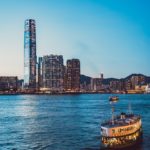 In 2019, protests against an extradition bill shook Hong Kong. A year later, Beijing imposed the National Security Law and changed the city’s electoral system to tighten control. These moves clamped down on dissent, targeting pro-democracy groups, media, and political parties. Many leaders and activists were arrested.
In 2019, protests against an extradition bill shook Hong Kong. A year later, Beijing imposed the National Security Law and changed the city’s electoral system to tighten control. These moves clamped down on dissent, targeting pro-democracy groups, media, and political parties. Many leaders and activists were arrested.
These changes sparked a wave of migration. Between January 2021 and March 2023, over 172,500 Hong Kongers applied for British National (Overseas) visas to move to the UK—about 2% of the city’s population. This exodus echoes earlier waves of migration around Hong Kong’s 1997 handover to China, as families faced political uncertainty.
New research shows that migration decisions aren’t just about individual choices—they are shaped by family dynamics, political views, and emotions. The study of 1,003 married couples in Hong Kong highlights two key factors: attitudes toward democracy and hatred for political opponents. These two forces are connected but separate. While democratic ideals may nudge people to leave when freedoms are under threat, emotional hostility toward opposing camps plays a bigger role.
Political Tension Fuels Migration
Hong Kong’s political divide has grown since the 2014 Umbrella Movement and the 2019 protests. Public spaces and media are now steeped in hostility. This emotional strain has made the city feel unlivable for many, prompting them to consider leaving.
The study found that affective polarization—hatred for political opponents—strongly predicts migration intentions. People with pro-democracy views are likelier to leave when authoritarianism rises, but it’s the emotional weight of polarization that turns intention into action.
Family dynamics add another layer. A spouse’s stress and political stance can influence the decision to migrate. For example, someone who isn’t eager to leave may still decide to move if their partner finds the political climate unbearable. Couples who share pro-democracy views and strong feelings against opponents are especially likely to leave together. But even politically divided couples may migrate to escape the strain of constant arguments.
Migration isn’t just an individual choice—it’s often a family decision. Even couples with aligned political values don’t always leave unless they feel strong emotional or practical pressures. Politically divided families may find migration offers relief from household tension, while united families may seek a fresh start in a less divided environment.
Challenges and Lessons
The study focuses on migration intentions, not actual decisions, and doesn’t track how these plans change over time. It also doesn’t account for other factors, like job prospects or quality of life. Future research could explore how migration decisions unfold and how families adjust after moving.
Governments can learn from this. Hong Kong could ease tensions by fostering dialogue and reducing polarization. Countries welcoming migrants should offer support tailored to families, including resources to help them adapt to their new lives and reduce settlement stress.
The wave of migration from Hong Kong highlights the cost of political division. Emotional and political tensions drive people to seek stability elsewhere, reshaping communities both at home and abroad. Understanding these forces is key to addressing the challenges they create.